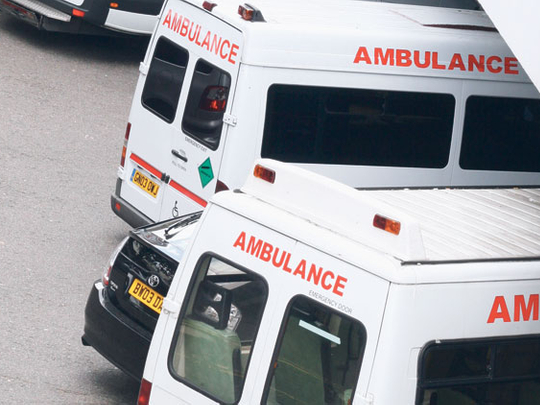
Dubai: The National Health Service (NHS) was introduced in a post-Second World War Britain, by Clement Attlee's Labour Government. Aneurin Bevan, Secretary of State for Health, was given the job of making the NHS happen.
With the aim of providing free health care for all, its original aims were to meet the needs of the population based on clinical need, rather than the ability to pay.
However, the NHS still continuously comes under fire, with issues ranging from lack of funding (generated through National Insurance contributions), long waiting lists, bed shortages, cleanliness issues and a number of professional scandals.
Waiting lists for transplants, GP appointments and non-essential surgery have been criticised.
However, in March 2009, the NHS announced that it had met its "18 weeks" waiting time target — the time patients are referred from a GP for further treatment, to starting the treatment within this time frame.
Trauma and orthopaedics and neurosurgery departments did not meet this target.
According to the service, the average wait for treatment for patients admitted to hospital last year was 8.6 weeks. Outpatients waited an average of 4.6 weeks in January 2009, compared to 7.4 weeks at August 2007.
While waiting times had been reduced in England, however, they rose in Scotland, Wales and Northern Ireland, according to a January report by The Independent. The study quoted by health policy think-tank the Nuffield Trust, stated that 79 per cent of patients in Wales and 84 per cent in Northern Ireland waited more than six months (comparative figures for Scotland were not available).
The NHS was also racked with a number of high-profile scandals, involving the retention of children's organs at two children's hospitals in England.
Parents of the children were not told, and did not give permission, for their children's organs to be retained by the hospitals, leading to legal action.
Superbugs
A somewhat dubious term, "bed-blockers" has been used to describe those still receiving non-essential treatment in hospitals, as they cannot return to their own homes for various reasons.
The term has come to be used to describe elderly patients, who cannot return to retirement homes or their own homes, so have no choice but to stay in hospital, "blocking" beds for other patients.
In a 2007 Department of Health (DOH) survey, it was revealed that "lost bed days" amounted to one million, at a cost of £200 million (Dh1,124 million) to the NHS. The Sheffield Teaching Hospitals NHS Trust showed that one patient had stayed in hospital for four years, because of a lack of a suitable housing alternative.
Outbreaks of the "superbug" MRSA (Methicillin-resistant Staphylococcus aureus) and the Clostridium difficile virus in NHS hospitals raised the issue of cleanliness in the UK's health services. They are termed "superbugs" as they have developed a resistance to some antibiotics. Patients undergoing routine surgery, having contracted one of the bugs while staying in hospital, have died from their infections.
According to DOH statistics, a total of 36,674 patients died between 1997 and 2007, as a result of contracting these infections. One Dutch study looked at the geographical distribution of the superbugs, concluding that the infections are spread when patients are transferred between hospitals (the study was conducted across 26 European countries)
NHS Doctors and Nurses typically work long hours because of staffing issues, and have raised complaints about rates of pay.
Strike action
In December last year, Chancellor of the Exchequer Alistair Darling, placed a one per cent limit on nursing pay rises, followed by the announcement of a pay restraint for senior NHS nurses in January of this year.
Union leaders previously announced that any pay cuts would result in strike action.












